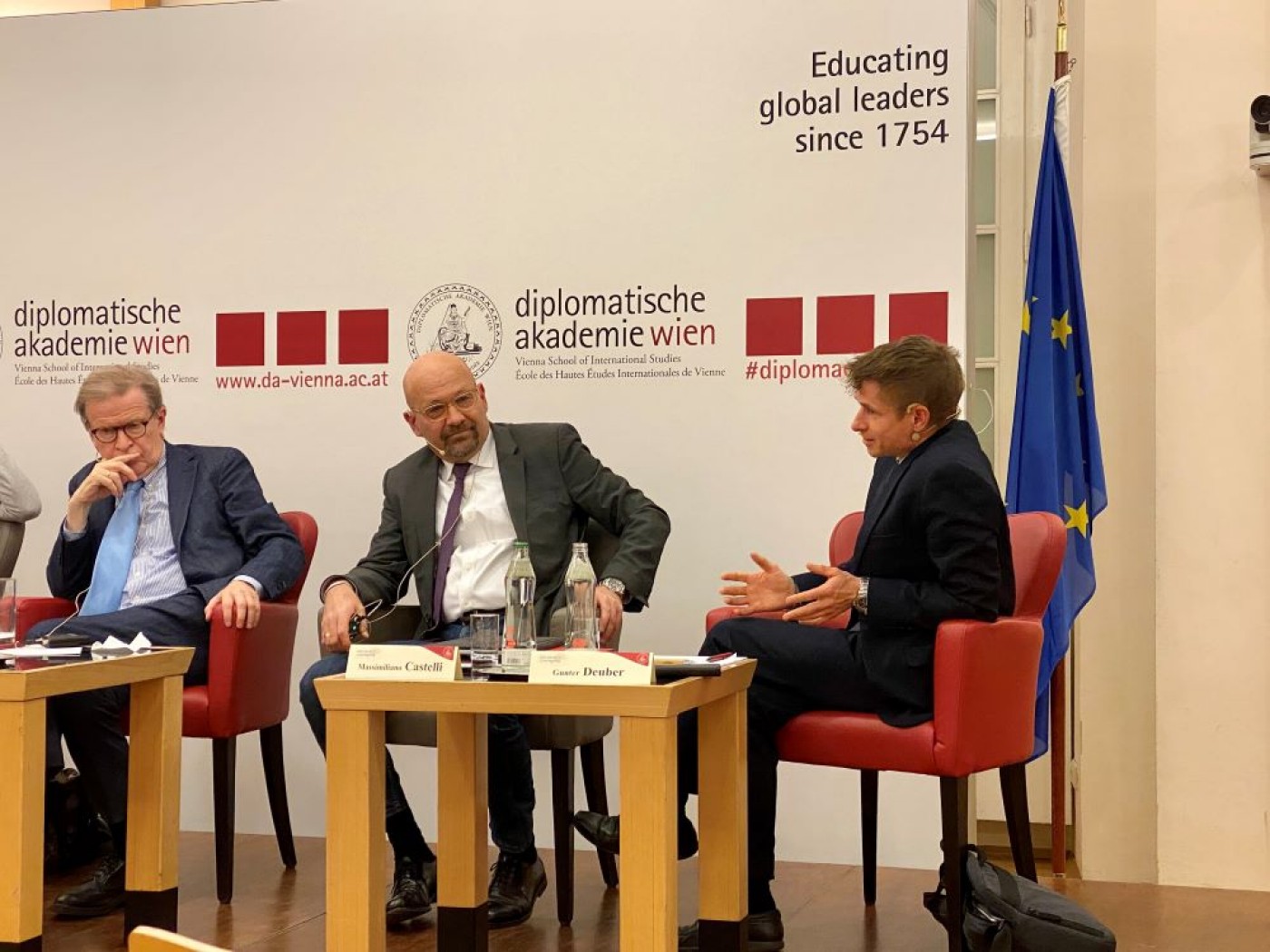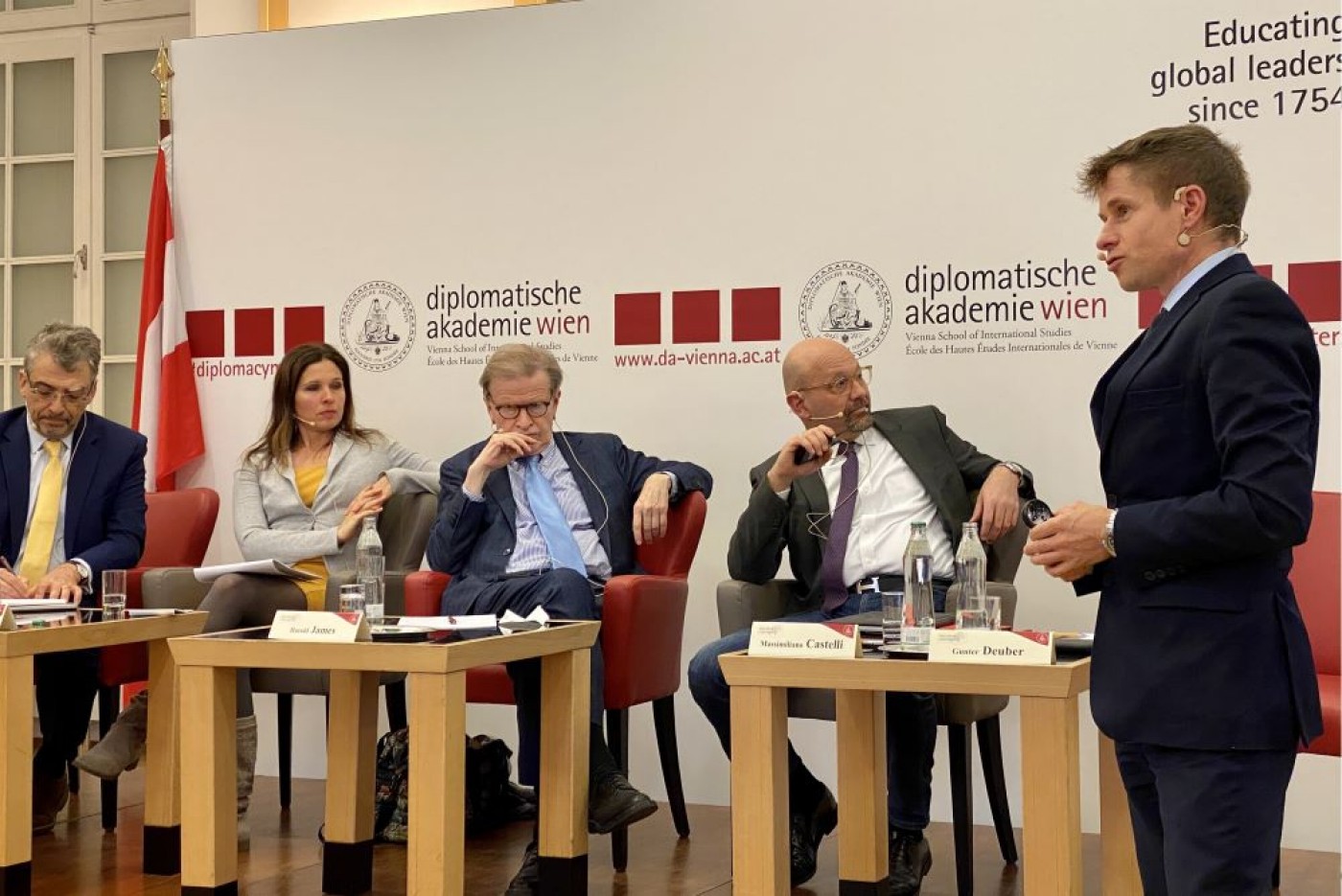Dialogue of Continents: De-risking the Transition to a New Globalisation
At the 6th edition of the annual Dialogue of Continents conference, experts from all over the world discussed the key topics of de-risking and the transition to a new globalization. One roundtable discussion in particular focused on the question of why de-globalization is happening. Four experts from different fields participated in the discussion: Gunter Deuber, Managing Director and Chief Economist at Raiffeisen Bank International, Harold James, Professor of History at Princeton University, Erica Moret, Senior Researcher at the Geneva Graduate Institute, and Massimiliano Castelli, Managing Director at UBS Asset Management. Ariel Cohen, Director of Energy, Growth and Security Program at ITIC, chaired the discussion.

In the discussion, each panelist had a very specific perspective on deglobalization. While Mr. James, as a historian, drew parallels between earlier instances when de-risking and deglobalization were discussed, such as the oil price shock of the 1970s and Japan's economic rise in the 1980s, Mr. Castelli shared his view of deglobalization from a financial perspective. According to him, a period of hyper-globalization that began in the early 1990s is now coming to an end. Ms. Moret, a specialist in financial sanctions, elaborated on sanctions and their role in deglobalization. According to her, the imposition of sanctions always leads to a certain fragmentation of global trade and finance, which needs to be mitigated.

Eventually, Mr. Deuber demonstrated what the previously discussed ideas and insights on financial sanctions, de-risking, and deglobalization meant in practice. Representing a western bank reducing its exposure in Russia, he emphasized that companies like Raiffeisen Bank International were by no means naive in their assessment of the geopolitical situation. Being especially risk sensitive, western banks reduced their exposures to the Russian market to commercially manageable levels from 2014 onwards, when Russia was no longer a “normal” market.
Russia, in turn, also reduced its international banking exposures after 2014, as the country was probably preparing itself for several years in terms of decoupling and de-risking. Despite facing one of the tightest sanctions regimes in history, Russia is still managing to muddle through, as it is difficult in the absence of shared values to fully sanction a G-20 economy that is also a current account surplus country. This is also reflected in the fact that only around 60 % of world GDP are currently sanctioning Russia, while China, its allies, and non-aligned countries make up the remaining 40 %. These 40 % are however sufficient for the Russian economy to at least withstand western sanctions. In addition to that, Mr. Deuber explained, China is providing a hedge to Russia, as the Renminbi already accounts for 50 % of the country’s currency trade. Therefore, as long as this “China hedge” persists, Russia will be able to survive a tough western sanctions regime.